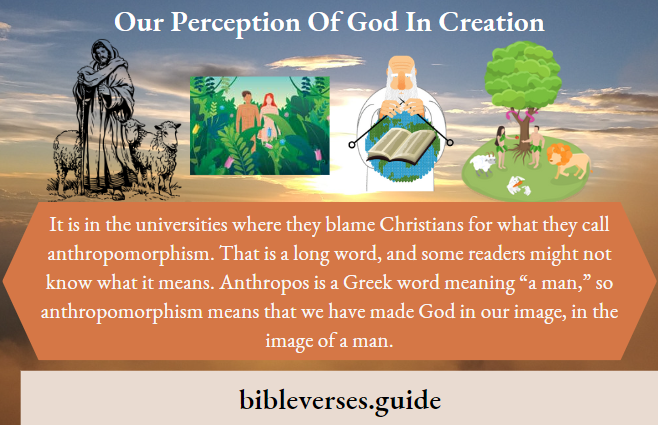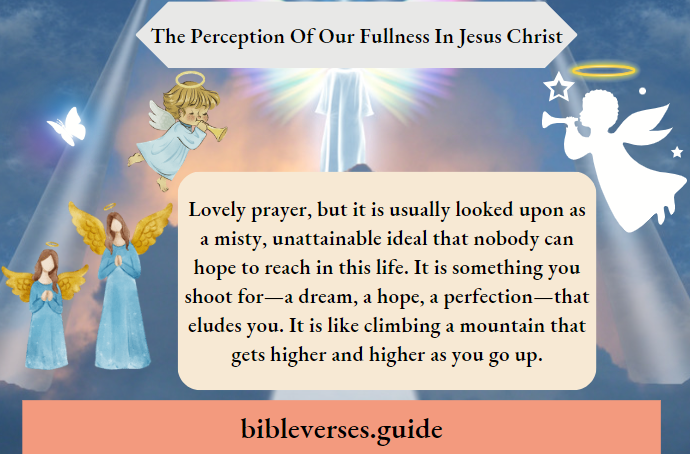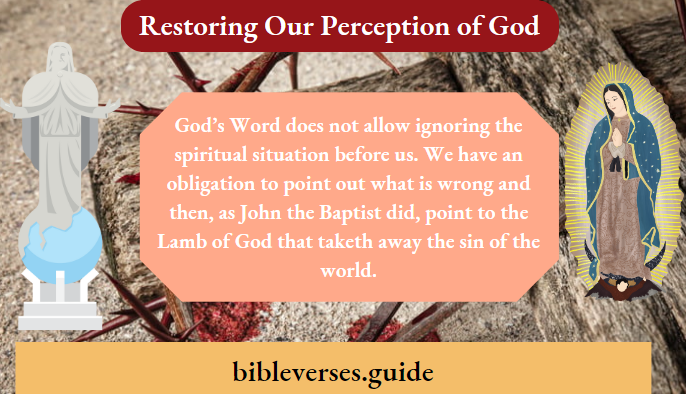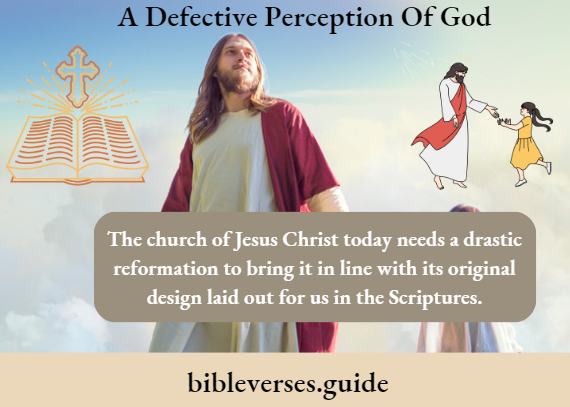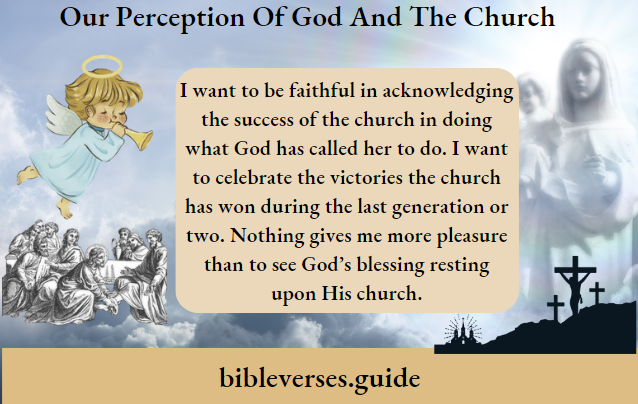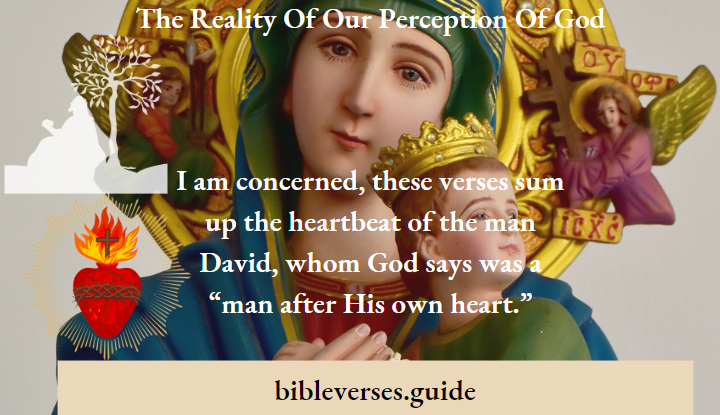The Effect Of Our Perception Of God
Our hearts sing in praise and adoration as we experience Thy presence, O God, in our day-to-day living. It would be one thing to worship Thee one day, but to be able to worship Thee every day, and all day long, is the great joy of knowing Thee. Amen.
Somebody asked Charles Spurgeon once if he ever preached a sermon more than once. “Do you think,” he replied, “I would throw away the ax after I cut down the tree?” I know exactly how he felt, and I feel the same way.
You run the risk of repeating yourself if you teach for very long. I am of the nature that if what I am saying is helpful, not only do I want to repeat it, but also I give everyone permission to repeat it without giving me any credit. After all, it is the message that really matters.
Read and Learn More Things That Delight The Heart Of God
I think everybody ought to have the privilege of using any of the Lord’s weapons belonging to the Lord’s people, except their armor. Remember, Saul’s armor did not fit David, and I will never wear anybody’s armor except mine.
Let me outline a few things along this line of knowing God.
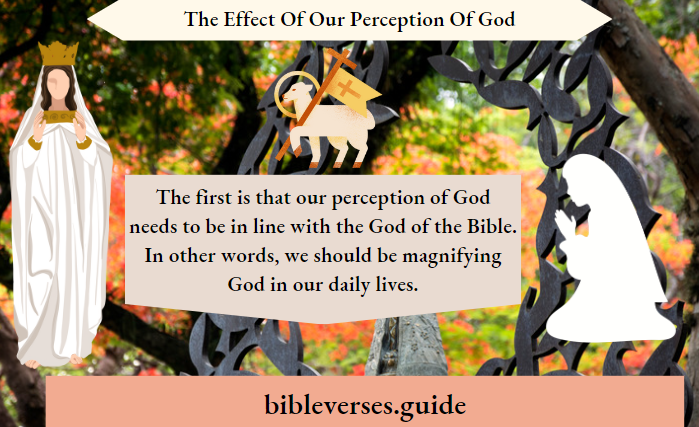
The first is that life is a serious thing, and this is a serious world in which we live.
I am encouraged that there are still among us enough seri¬ous-minded people who realize the seriousness of life and are honestly concerned about how they can meet and conquer life and death—about how they can salvage something out of the wreck of this world and how they can save their own souls out of a disaster.
“Save yourselves,” Peter cautioned, “from this untow¬ard generation.” If an apostle said this, I think I can whisper it today.
I think there are some who want to save their souls from this untoward generation—this coming crash and downfall of the world. In light of this, I would like to give them counsel, not from a perfect man, but from someone who has walked with God, who has loved and lived the Scriptures for quite a while, and who has no other motive except to do you good.
Nobody can get my ear or my respect if I know he has a hand extended. I do not think this is such a spiritual thing; I have no conscience about it at all. I plug my ears against the man who I suspect is just out to get something.
However, no man can talk too strictly to me if I know he loves me and does not want anything I have. And no man can be too eloquent for me to walk out on if I have a suspicion that he wants something I have.
If we are going to save ourselves from this untoward generation and salvage something out of the world, I think four things need to be put in focus in our everyday lives.
I am positively sure after many years of observation and prayer, that the basis of all our trouble today in religious circles is that our God is too small, that our God is not big enough. This cannot be repeated too many times.
I do not think we can make God big, because that is completely beyond our ability. We cannot have an imaginary God. We must see God as He has delighted to reveal himself, especially in the Word of God.
I believe that the most important verse in the Bible is—and this is a very hard thing to say because the Bible is such a magnificent book—“In the beginning God…”
This is the most important verse because that is where everything must begin. God is the fountain out of which everything springs, and He is the foundation upon which everything rests. God is all in all.
I am quite sure that if we would begin to see our God bigger, we would also begin to see people smaller. This is the day of the magnification of slick personalities, and as we magnify slick personalities, we are, in fact, minimizing God. We have church meetings in which we never see God at all. We see only the servants of God, which is a tragedy.
I am afraid that we have a lot of hero worship in the church of Christ today. We are magnifying the messenger and consequently minimizing the message. The message should be of such a nature that it overshadows the messenger.
God moves according to an eternal purpose, and He carries on after His plans. He does not need anybody to direct Him, correct Him, or qualify what He has to say. The most astounding and powerful phrase in all of Scripture is “Thus saith the Lord.” After that, nothing more needs to be said, God is enough.
The creeds have taught us that God is a spirit, infinite, eternal, and unchangeable in His being, wisdom, power, holiness, justice, goodness, and truth. With the contemplation of God’s majesty, all eloquence fades into the shadows. Mans’s eloquence cannot rise high enough to give praiseworthy enough to this One we refer to as the mysterium tremendum.
Man’s language can never be adequate enough to fully express the worthiness of our God. Many wordsmiths throughout the years have tried to honor God with language. Language can never fully express God in all His majestic wonderment. We try, and the hymn writers have done a great job of doing it, but even they fall short of the glory that belongs only to God.
Sometimes in our prayers, we get rather eloquent. I have discovered that when I am the most eloquent in my prayers, I am not getting very much accomplished. My eloquence sometimes gets in the way of really connecting with God.
I tell you, our feelings can never be boiled down to mere words. There is something about God that is so majestic and so awe-inspiring as to frustrate expression.
I have been an eager reader of Shakespeare, but even he lacks the ability to articulate the majesty of God in words and phrases that are worthy of God. No matter what we say, no matter how we say it, our God is bigger.
When I try to express my love for God, words get in the way, and sometimes I am even brought to a place of silence. It is in the silence that my appreciation of God raises itself in a worthy manner.
If I had the talent and ability of Shakespeare, of Francis Bacon, of Henry Thoreau, of John Milton—the list could go on and on—I could never adequately express to God what is worthy of Him. To know God in the fullness of His revelation is to feel a deep sense of inadequacy in our worship.
Those who are happy with their worship have probably never been in the presence of God. When I am on my face before God in worship, there is such a feeling of inadequacy as I come before this holy One. How can I come as imperfect and limited as I am and bring to the holy, unlimited One that which is worthy of Him?
Why is this? Why is it that I have difficulty expressing in my worship what is worthy and acceptable to God?
The basic reason is the flesh. God cannot accept anything of the flesh. No matter where you go in the Scriptures, you will find that the flesh is always contrary to God’s will. The flesh needs to be dealt with in our everyday lives. Nothing of the flesh is pleasing unto God.
The greatest expression of the flesh is entertainment. The world has honed this to absolute perfection. Entertainment has taken over in our culture today, and nothing can be done apart from it. The error that we make is this: We think we can obtain God. We believe that what we do and how we do it will bring a sense of pleasure to God.
What we need to understand is that God cannot be enter¬tained, especially by the flesh. Once we get this into our heads, we begin to look at our relationship with God a little differently. God is not going to entertain me, and God is not going to be entertained by me. This fact rules out a lot that passes for worship today.
Entertainment is simply the demonstration of the flesh at its finest moment. Because this is acceptable in the world, many think it is acceptable to God. Most of our church worship services are simply religious entertainment.
If it is entertainment, it is really not of God. Worship and entertainment are not synonymous, yet many in our evangelical churches today think they are. Sunday morning to some has become a time of religious musical entertainment, thinking that it is pleasing unto God.
The God of the Bible is of such a nature that He is worthy of that which is compatible with His nature. Entertainment is not compatible with the nature of God. If we are going to please God, we need to please Him on His terms. If we are going to worship God, we must worship Him on His terms.
Dealing with the flesh in the church today is probably the most difficult thing that we will ever do. If we can deal with the flesh elements in the church, we will release congregations to positions of worship acceptable unto God.
Although I am not dealing with the gifts of the Spirit in this book, I simply would point out that God can be served and worshiped only through the gifts of the Spirit. Mans’s talent falls far short of that which is pleasing unto God. The flesh cannot do the work of the ministry or the worship of God. Somehow we have lost this concept.
What are some people going to do if they get to heaven and find out there is not one bit of entertainment throughout all the golden streets? The Golden Streets are certainly not Broadway. Heaven is not a place of entertainment.
Heaven is a place of worship, and the object of the worship is God. The more I know about God, the more I will begin to understand what kind of worship is acceptable and what is not acceptable. This is why it is important for me to have a clear, precise perception of God as He truly is.
Once I understand God and the worship and the ministry that are acceptable to Him, I need to move on to one area, which is to magnify God in everything I do. Again, let me point out, that the flesh cannot magnify God.
I need to deal with the flesh so that I can magnify God in every aspect of life. If there is one aspect of my life where God is not magnified, there is no aspect of my life where He is worthily magnified.
Dealing with the flesh is a very serious matter because it brings me to the point of worthily magnifying God. What does it mean to magnify God?
To put it bluntly, it simply means to make God big in your life. The more you get to know God and understand His holi¬ness, the more you will begin to magnify God in your life, and then God will become the biggest thing in your life.
If something in your life is bigger than God, I can assure you that God is not in your life. The goal that I have as a Christian is to magnify God. The great discipline of the Christian life is to live in a way that magnifies God.
The word that is used in this regard is to mortify the flesh. That is simply to turn your back on the flesh and reckon your flesh to be dead.
“I am crucified with Christ,” Paul said, “nevertheless I live; yet not I, but Christ liveth in me: and the life which I now live in the flesh I live by the faith of the Son of God, who loved me and gave himself for me” (Galatians 2:20).
This is to put a death sentence on everything about my life. I cannot be one way on Sunday morning and different come Monday morning. I cannot be one way when I am around Chris¬tians and completely different when around other people.
Some claim to have mortified the flesh, but they still have the spirit of resentfulness, they still love money, and they still have a temper. Either mortify the flesh or the flesh will destroy you and your Christian testimony.
I must confess some of the most delightful meetings that I have been in have been where God is present in such awesome power that the people were afraid to move. At times, the presence of God was so thick in the assembly that nobody could even whisper. God was indeed in that place.
If more of our churches would experience this on a regular basis, the trend for entertainment would quickly disappear. There is no entertainment anywhere or by anyone that can compare with the manifest presence of God upon an assembly of believers.
As we mature in the Lord, we lose our desire for the toys of religion. They are no longer satisfied, and the only thing that really satisfies is God’s presence in our midst. It is not about a good show. It is not about being entertained and enthusiastically lifted up.
If I can be lifted up enthusiastically, I can come crashing down too. But when I am in the presence of God and He manifests himself to me, there is nothing artificial. I can never get over that experience, the experience of practicing the presence of God. Again, let me say, that we must deal with the flesh.
I have been accused many times of being radical, and I do not mind that at all. I think you have got to be a little bit radical if you are going to follow the Lord Jesus Christ, so I am not afraid of being radical. If you really want to see an increased experience in the presence of God, let me offer a few suggestions.
Go home and begin pulling the plug on all those things in your home that are simply there for entertainment. I am talking about your radio, your TV, and maybe even your telephone.
I know we need the telephone for a lot of reasons, but there are times when we need to cut ourselves off so completely from the world that all we have left is God. That is all right with me. I want to be in such a situation that all I have is God.
You do not need to know so much, and you do not need to have so many things. If your life is down to the basics, it will enable you to hold on to the faith once delivered to the saints, for as Brother Lawrence has said, “Practice the presence of God.”
One last thought along this line would be to cultivate a servant’s attitude!
David, after he had served his own generation by the will of God, fell asleep. I firmly believe that no man has any right to die until he has served his generation. As a Christian, when I die, I want to make sure that the world around me is in debt to me because of my service.
When John and Charles Wesley came into the world, they were in debt to their mother, to their father, to their nurse, and to everyone who served them. They did not die until they turned the tables on the world, and now the world and the church of God are in debt to John and Charles Wesley.
It is hardly possible to have a church service without singing one of Charles Wesley’s hymns.
Down the line, we could go to the Great Hall of Faith. One by one we could see those who have come into the world owing everybody everything, and then when they died, they reversed the tables, and now the whole world is indebted to them. Why?
Because they had a servant mentality. This is crucial, and it flows from a proper perception of who God is.
You cannot serve the last generation, because it is gone. In addition, you can only indirectly serve the next generation, but you can serve this present generation. Too many Christians are simply religious sponges; they absorb and absorb and absorb, and that is about all there is to their lives.
However, the Lord wants us to serve, to do things for people, to put people in debt to us. As we magnify God, crucify the old man, simplify our lives, and cultivate a servant attitude, we put this generation and generations to come in debt to us.
Revive Thy Work, O Lord
Revive Thy work, O Lord,
Thy mighty arm make bare;
Speak with the voice that wakes the dead,
And make Thy people hear.
Revive Thy work, O Lord,
Disturb this sleep of death;
Quicken the smoldering embers now
By Thine almighty breath.
Revive Thy work, O Lord,
Create soul-thirst for Thee;
And hungering for the bread of life
O may our spirits be.
Revive Thy work, O Lord,
Exalt Thy precious name;
And, by the Holy Ghost, our love
For Thee and Thine inflame.
Revive Thy work, O Lord,
Give Pentecostal showers;
The glory shall be all Thine own,
The blessing, Lord, be ours. –Albert Midlane(1825-1909)


